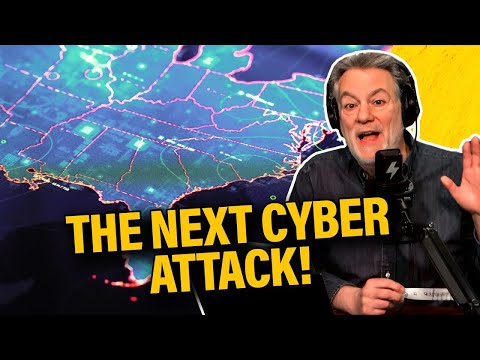**Title: The Cyber Frontier: Nation States vs. Basement Hackers**
In an age where everything is connected by the internet, the threats we face have multiplied and evolved. On one front, we see independent hackers—maybe a 14-year-old in their parents’ basement—tinkering with the digital space just to see if they can pull off a daring breach. But on another front, there’s a much darker reality: well-organized and sophisticated cybercriminals backed by nation states that treat cyber warfare as a means to reach their strategic goals. This raises an important question: who poses the greater threat to our digital security?
Nation state actors, or hackers linked to governments, represent a crucial shift from simple, recreational hacking to the realm of strategic risk. These entities are not just playing for fun; they are often conducting cyber operations that could financially benefit their governments or serve national interests. For example, the infamous hackers from North Korea have been noted for funneling funds through cybercrime to support their authoritarian regime. Their operations are generally well-funded and legally protected within their jurisdictions, allowing them to operate quite freely, while they target countries like the U.S. with malicious intent.
In contrast, independent hackers, often called “script kitties,” tend to be less sophisticated and are usually driven by curiosity or the excitement of seeing if they can accomplish a breach. They download tools, try their luck, and sometimes get lucky, but their impact is often limited compared to the calculated maneuvers of a nation state actor that can launch a backdoor attack on critical infrastructure. Sure, they might get a stern talking-to from their parents if the FBI comes knocking, but a government-backed cybercriminal is a different beast altogether—one that can potentially destabilize economies and disrupt lives on a grand scale.
While the implications of cyberattacks from these sophisticated actors can be dire, responding to and attributing blame for such attacks is a monumental task. Identifying a nation state behind a cyber incident is akin to finding a needle in a digital haystack. No attacker is going to send a postcard with their name and address attached to their cyber hijinks. Experts in the cybersecurity field often rely on years and even decades of behavioral patterns, hoping to uncover and trace the clues left behind—a digital fingerprint, if you will. Unfortunately, these fingerprints can be obscured, modified, and alternate locations can be employed to mask the actual origin of the attack, turning even the most skilled sleuths into frustrated detectives.
There’s also the coordination issue, as entities within various states and nations work together to strengthen cyber defenses. Take Oklahoma, for example. Local municipalities, county governments, and state agencies share a vested interest in maintaining security, creating a unified front against cyber threats. However, coordinating efforts nationwide or on an international scale can bring its own set of challenges. The complexities of jurisdictional laws and interests can make collaboration quite cumbersome, much like trying to organize a family reunion where everyone has different diets and conflicting schedules.
To complicate matters further, attributing blame to a specific nation can lead to significant political ramifications. Take the recent controversies surrounding attacks on big tech platforms; one such incident purportedly originated from Ukrainian sources, but determining culpability was more of a guessing game than a clear-cut answer. This uncertainty brings up the uncomfortable question: If a cyberattack truly came from a specific country, what could or should be done in response, especially if it could escalate into a larger conflict?
In conclusion, while both independent hackers and nation state actors occupy the same digital space, their motivations and operations differ significantly. The fun-loving teenager in a basement doesn’t pose the same threat as a well-coordinated cyber operation orchestrated by a government with far-reaching impacts. As the world grapples with this evolving landscape, the challenge lies in fortifying defenses, identifying threats, and navigating the often murky waters of international digital diplomacy. It’s not just a matter of who is hacking into our systems; it’s about ensuring that our cybersecurity measures are as robust and sophisticated as the threats we face. Just like any good game of chess, keeping a strategic eye on the board can make all the difference in winning the fight against cybercriminals.



